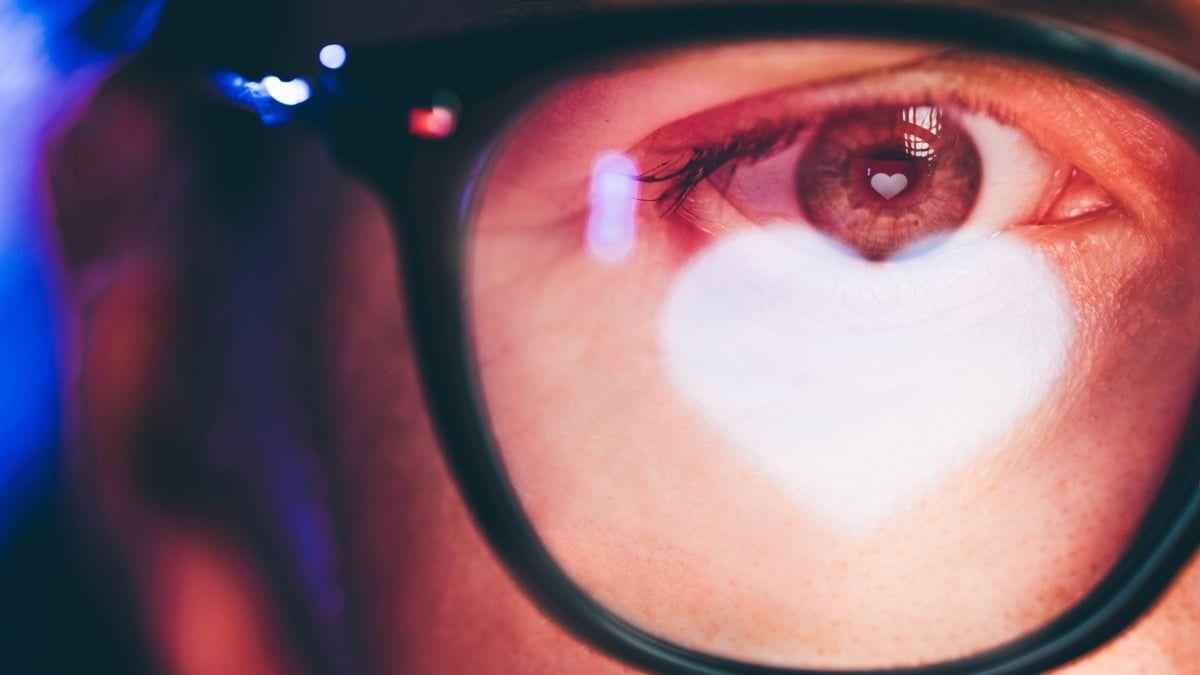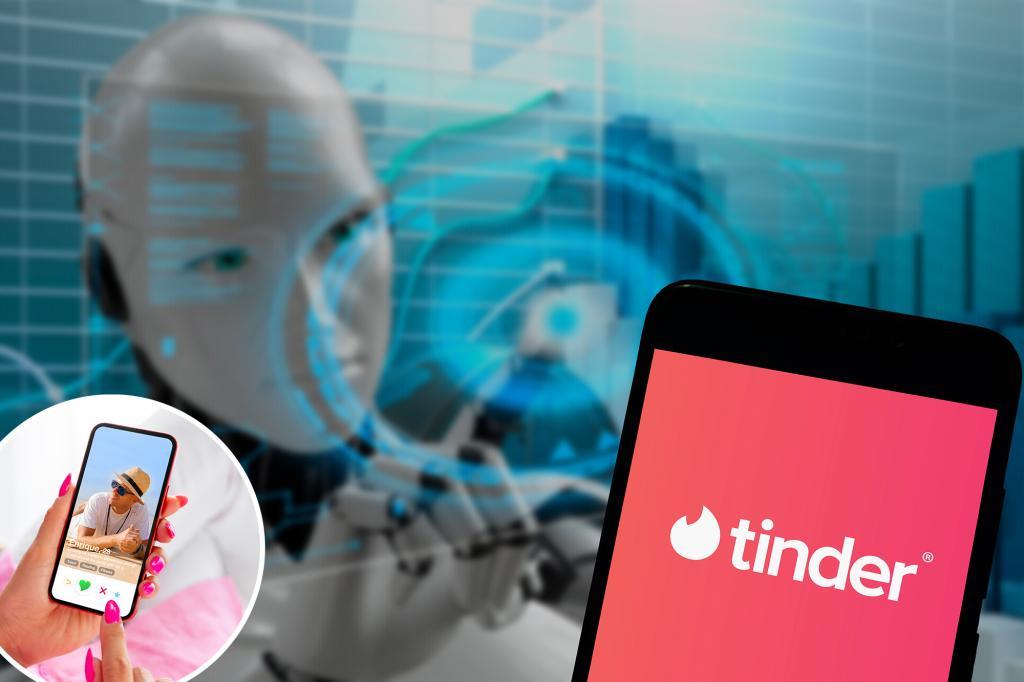Gen Z Skeptical of AI in Dating Apps, Survey Reveals Industry Challenges
2 Sources
2 Sources
[1]
Gen Z is less comfortable with AI dating app features than millennials, survey finds
As young adults become more jaded by online dating, dating apps are trying to save themselves with AI features. Over the last few years, all the big players like Tinder, Hinge, and Bumble have added AI-powered tools. Users can now pick profile photos, break the ice, and get prompt help with AI. But has it paid off? No, according to a new survey from Bloomberg Intelligence. Gen Z reported higher levels of discomfort than millennials when it came to using AI for tasks like modifying photos, messaging matches, and crafting profile prompts. Nearly half of the respondents said they didn't have trouble creating their profiles independently or messaging matches. The survey of around 1,000 U.S. respondents was collected by Attest on behalf of Bloomberg Intelligence between May 15 and 29. The survey didn't mention apps by name, Bloomberg reported, only the types of features added. Bloomberg Intelligence technology analyst Nicole D'Souza, who wrote the report on the findings, said they suggested that apps aren't providing features that address user needs. When Mashable spoke to 10 daters earlier this year about dating in 2025, they said that they're sick of dating apps and wanted to date in-person again. Despite this, though, it seems that some younger people are using AI to find a partner. Match and the Kinsey Institute recently found that nearly half of Gen Z has already used AI in their dating lives. In some cases, young people want AI to be their partner. Dating apps, however, are working to beat the online dating fatigue. New Tinder CEO Spencer Rascoff, for example, wants to shed Tinder's "hookup reputation." On LinkedIn, he introduced "product principles" that will guide the app in its new era. One of them? "Stronger Together, Smarter With AI."
[2]
Dating apps are banking on AI to win over Gen Z -- but the sparks aren't flying, survey finds
Even the CEO of Match Group, a major dating-app conglomerate, has admitted as much. "The high-pressure kind of product offering of looking at a photo and judging it -- that is cringy for a lot of Gen Z people," Spencer Rascoff, the newly minted CEO of Match Group that houses Tinder, Match.com, OkCupid, Hinge, and Plenty of Fish, recently told The Wall Street Journal. In an attempt to capture more young users, dating apps like Hinge, Tinder, and Bumble have recently started introducing AI-powered features to help solve some of the complaints users have had about the apps. This includes features like helping prompt users when creating their profile or crafting conversation starters. But those efforts aren't impressing Gen Z. Bloomberg Intelligence recently conducted a survey of about 1,000 dating app users, and nearly 50% of respondents said AI didn't move the needle for them in terms of making a profile or having conversations with matches. And while Gen Z is the youngest generation to enter adulthood during the AI revolution, they're actually more uncomfortable with using AI to draft profile prompts, respond to messages, and modify pictures, survey results showed. While the report didn't explicitly name certain dating-app companies, several have made public their focus on AI features. In January, Hinge announced its AI-powered "Prompt Feedback" feature that "nudges" users to improve their responses. "With Prompt Feedback, we're intentionally leveraging AI to provide personalized coaching during a key moment for daters -- making a great first impression on their profiles," Justin McLeod, Hinge founder and CEO, said in a statement. Bumble, another major dating-app company founded and run by Whitney Wolfe Herd, also uses AI for several of its features like AI Photo Picker and AI-powered conversation prompts. It also uses AI for safety features that help identify and remove fake profiles, scams, and spam as well as blurring out explicit images. While safety features are undoubtedly helpful and a positive step forward for making dating apps more inviting, AI features won't necessarily save the industry. Dating apps "can try to come up with more ways to [allow] people to assess chemistry, but unless they are really pushing people to meet in real life by maybe creating more in-person activations and events where people can assess, 'Oh, is there a vibe here?' I don't know that they will make the comeback to being as big as they once were," Ilana Dunn, dating coach and podcast host of Seeing Other People, recently told Fortune. Meanwhile, the Bloomberg survey findings also suggest the tools dating apps have introduced thus far just may not be addressing users' needs, Bloomberg Intelligence analyst Nicole D'Souza wrote in the report. Therefore, this could continue to hurt dating apps' margins. Bumble's first-quarter revenue dropped nearly 8% year-over-year while Tinder's fell 3%. Hinge, however, appears to be bucking that trend, reporting a 23% jump in Q1 revenue compared to last year. But Rascoff also announced in May he cut 13% of staff, which he said would save the company roughly $100 million. Bumble also recently laid off 30% of its workforce. This came shortly after Wolfe Herd had returned to Bumble in March as CEO after a hiatus. Herd addressed the pitfalls of dating apps with Fortune's MPW Editor Emma Hinchliffe upon her return. Dating apps "are rooted in rejection and judgment," Herd said. "You are judging people, and they are judging you. You're being rejected, and you're rejecting. These are not healthy dynamics." "Our focus now is on moving forward in a way that strengthens our core business, continues to serve our members effectively, and positions us for future growth," a Bumble spokesperson told Fortune at the time of the layoffs.
Share
Share
Copy Link
A recent survey shows Gen Z's discomfort with AI features in dating apps, highlighting the industry's struggle to address user needs and maintain growth.
Gen Z's Reluctance Towards AI in Dating Apps
A recent survey conducted by Bloomberg Intelligence has revealed a surprising trend: Gen Z, the generation most associated with technological adoption, is expressing higher levels of discomfort with AI features in dating apps compared to millennials. The survey, which included approximately 1,000 U.S. respondents, found that nearly half of the participants reported no difficulty in creating profiles or messaging matches independently
1
.
Source: Fortune
Gen Z's discomfort extends to various AI-powered features, including profile photo selection, ice-breaking assistance, and prompt help. This reluctance challenges the dating app industry's recent push towards AI integration as a means to combat user fatigue and maintain engagement
2
.Dating App Industry Faces Challenges
The survey findings come at a crucial time for the dating app industry, which is grappling with declining revenues and user engagement. Major players like Bumble and Tinder have reported year-over-year revenue drops in the first quarter, with Bumble experiencing a nearly 8% decline and Tinder seeing a 3% decrease
2
.In response to these challenges, dating app companies have been implementing various strategies:
- AI Feature Integration: Apps like Hinge, Tinder, and Bumble have introduced AI-powered tools to assist users in profile creation and conversation initiation
1
. - Safety Enhancements: Bumble, for instance, utilizes AI for identifying and removing fake profiles, scams, and explicit content
2
. - Workforce Restructuring: Both Match Group (Tinder's parent company) and Bumble have recently announced significant layoffs to cut costs and streamline operations
2
.
Industry Leaders Acknowledge Shortcomings
Spencer Rascoff, the new CEO of Match Group, has acknowledged the need for change in the industry. He stated, "The high-pressure kind of product offering of looking at a photo and judging it -- that is cringy for a lot of Gen Z people"
2
. This recognition signals a potential shift in how dating apps approach user experience and engagement.Similarly, Whitney Wolfe Herd, founder and CEO of Bumble, has addressed the fundamental issues with dating apps, noting that they are "rooted in rejection and judgment"
2
. This acknowledgment suggests that the industry may need to reconsider its core mechanics to better align with user preferences and well-being.
Source: Mashable
Related Stories
The Future of Dating Apps
As the industry faces these challenges, experts and users alike are calling for a return to more authentic, in-person connections. Ilana Dunn, a dating coach, suggests that unless dating apps focus on facilitating real-life meetings and events, they may struggle to regain their former popularity
2
.Interestingly, despite the general skepticism towards AI in dating apps, a separate study by Match and the Kinsey Institute found that nearly half of Gen Z has already used AI in their dating lives, indicating a complex relationship between young adults and AI technology in the realm of relationships
1
.As dating app companies continue to navigate these challenges, it remains to be seen whether AI integration will prove to be the solution to user fatigue or if a more fundamental reimagining of online dating is necessary to capture and retain the interest of younger generations.
References
Summarized by
Navi
Related Stories
The Rise of AI in Dating: Enhancing Connections or Eroding Authenticity?
11 Feb 2025•Technology

AI dating apps reshape online dating as tools promise better matches but raise authenticity concerns
13 Feb 2026•Entertainment and Society
AI 'Wingmen' Set to Transform Online Dating: Boon or Bane?
09 Mar 2025•Technology

Recent Highlights
1
ByteDance's Seedance 2.0 AI video generator triggers copyright infringement battle with Hollywood
Policy and Regulation

2
Microsoft AI chief predicts artificial intelligence will automate most white-collar jobs in 18 months
Business and Economy

3
Anthropic and Pentagon clash over AI safeguards as $200 million contract hangs in balance
Policy and Regulation






